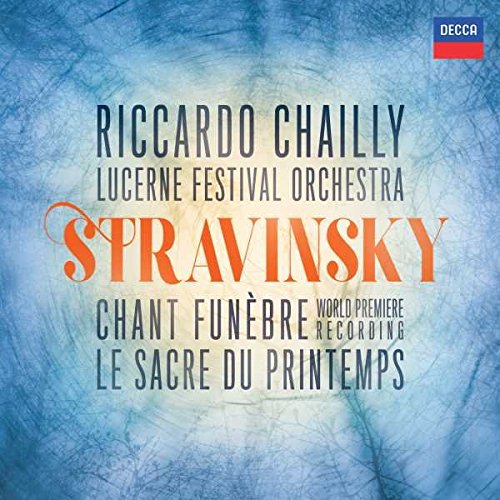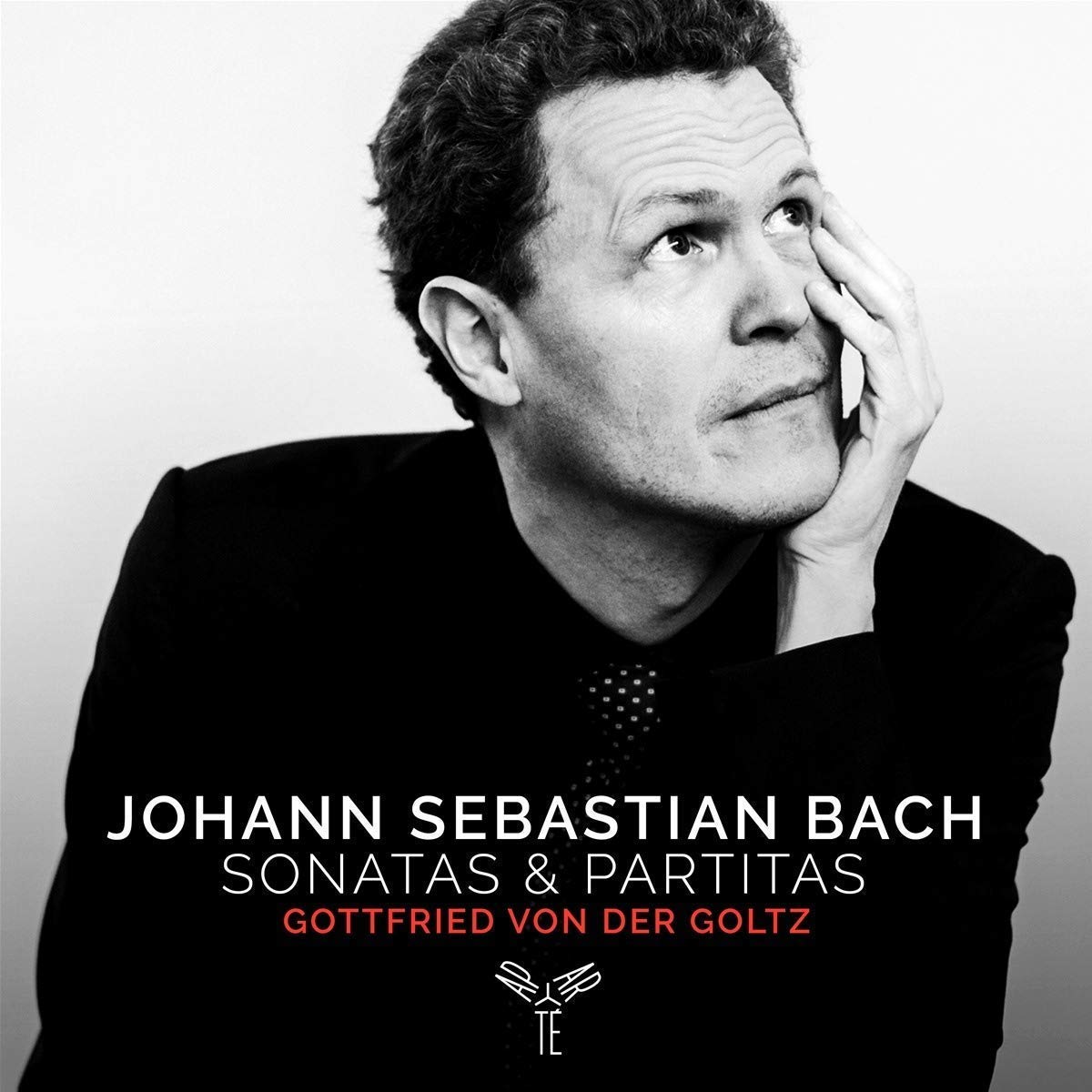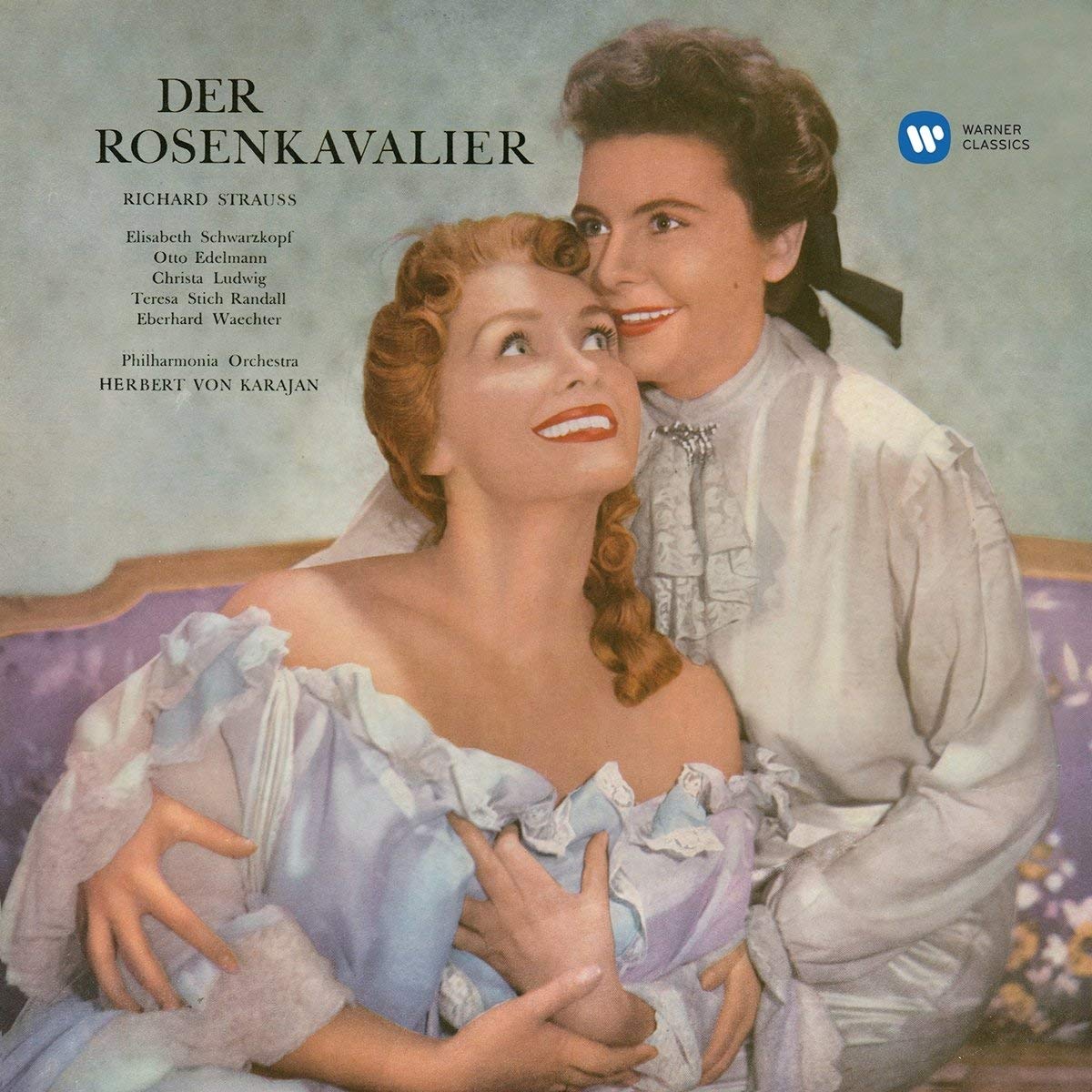Best Recordings of 2018
Time for a review of classical CDs that were outstanding in 2018 again! This lists the new releases with the best re-issues following below.
Preamble
It’s fair to say to say that such "Best-Of" lists are inherently daft if one clings too literally to the idea of "Best." Still, I have been making "Best of the Year" lists for classical music since 2004 (when working at Tower Records gave me a splendid oversight—occasionally insight—of the new releases and of the re-releases that hit the classical music market. Since then, I’ve kept tabs on the market as much as possible. Here are the links to the past iterations on ionarts and Forbes.com:
2004 | 2005 | 2006 | 2007 | 2008 | 2008—"Almost" | 2009 | 2009—"Almost" | 2010 | 2010—"Almost" | 2011 | 2011—"Almost" | 2012 | 2013 | 2014 | 2015 | 2016 | 2017
Making these lists is a subjective affair, aided only by massive exposure and hopefully good ears and discriminating, if personal taste. But then "10 CDs that, all caveats duly noted, I consider to have been outstanding this year" does not make for a sexy headline. You get the point. The built-in hyperbole of the phrase is a tool to understand what this is about, not symbolic of illusions of grandeur on my part. As has been my tradition, there are two lists: One for new releases and one for re-issues. And because there is a natural delay between the issuing date of a recording and my getting to listen to it, the cut-off date for inclusion in this list is roughly around September 2017. (In a way that’s good, because going back a little further softens the recency-bias that these lists can otherwise suffer from.) And here, without further ado, are "The 10 Best Classical Recordings Of 2018".
# 10 - New Release
L.v.Beethoven, Symphony No.3 (+ R.Strauss, Horn Concerto), Manfred Honeck, Pittsburgh Symphony, Reference Recordings FR-728SACD
 L.v.Beethoven, Symphony No.3 (+ R.Strauss, Horn Concerto), Manfred Honeck, Pittsburgh Symphony, Reference Recordings |
# 9 - New Release
R.Schumann, "Frage" – select Lieder, Christian Gerhaher & Gerold Huber, Sony 19075889192
 R.Schumann, "Frage" – select Lieder, Christian Gerhaher & Gerold Huber, Sony |
# 8 - New Release
J.S.Bach, Cantatas BWV 56, 95, 161, Rudolf Lutz, soloists, Bach Stiftung Orchestra & Chorus, Bach Stiftung B667
 J.S.Bach, Cantatas BWV 56, 95, 161, Rudolf Lutz, soloists, Bach Stiftung Orchestra & Chorus, Bach Stiftung |
# 7 - New Release
Kenneth Fuchs, Piano Concerto, Saxophone Concerto, E-Guitar Concerto, Poems of Life, JoAnn Faletta, London Symphony Orchestra, Jeffrey Biegel (piano), T.McAllister (sax), D.J.Spar (guitar) et al., Naxos 8.559824
 Kenneth Fuchs, Concertos & Songs, JoAnn Faletta, London Symphony Orchestra, Jeffrey Biegel (piano), T.McAllister (sax), D.J.Spar (guitar) et al., Naxos |
The lede is the Piano Concerto (Jeffrey Biegel on the ivories), which covers several pleasant universes of sound in its three movements: From Ravel via "Lady Macbeth trombone" glissandi to Coplandesque moments and well beyond, it never quite lets you drift and always makes your ears perk. Glacier, the serenata-like Concerto for Electric guitar (D.J.Sparr) and Orchestra, is every bit as interesting as the Piano concerto – with moments that remind, successively, of John Scofield and Terje Rypdal. This is in turn followed by the easy listening (in the best sense) Concerto for Alto saxophone (Timothy McAllister) and Orchestra with a hint, almost inevitably, of Gershwin. The orchestral songs Poems of Life for countertenor (Aryeh Nussbaum Cohen) and orchestra take a little longer to get used to in the surrounding context of the concertos, but eventually they, too, fit into the mold of harmonious tanginess that Fuchs casts for his works.
The performances easily do enough to reveal the music’s beauty and clever fun. Conductor JoAnn Faletta navigates the hired London Symphony Orchestra through the music without accidents. We don’t have Manfred Honeck, Teodor Currentzis and Kyrill Petrenko standing in line to make Kenneth Fuchs recordings any time soon (not that we should want to rule it out), so we’ll take what we get and am grateful it’s as good as it is.
# 6 - New Release
R.Schumann & J.Widmann, "Es war einmal…" – Märchenerzählungen op.132, Fantasy Pieces for Clarinet and Piano op.73, Märchenbilder for piano and viola op.113 & "Once Upon A Time… Five Pieces in Fairy Tale Mood for clarinet, viola and piano, Dénes Várjon (piano), Tabea Zimmermann (viola), Jörg Widmann (clarinet), Myros Classics MYR020
 R.Schumann & J.Widmann, "Es war einmal…", Dénes Várjon (piano), Tabea Zimmermann (viola), Jörg Widmann (clarinet), Myros |
If you are an inveterate Schumann lover, however, (or well on your way thereto), this is actually the continuation of the thrilling Schumann Violin Sonata recording of Varjon’s with Carolin Widmann that appeared on ECM and should have been high in my Best of 2009. The deliciously near-late Schumann, a dream of hazy, woven textures, was written between 1849 and 1851 and is here performed with sensitivity, intimacy (especially thanks to Várjon and Zimmermann), and expressive richness that gives the lightly forlorn music a haptic, certainly sensual quality: A winner of a disc, either – depending on your musical leanings – with a caveat or a bonus.
# 5 - New Release
P.I.Tchaikovsky, Symphony No.6 ("Pathétique"), MusicAeterna, Teodor Currentzis, Sony 88985404352
 P.I.Tchaikovsky, Symphony No.6 ("Pathétique"), MusicAeterna, Teodor Currentzis, Sony |
The impression he left was certainly visceral: "All smiles, with long bobbed hair, and India-rubber limbs, Currentzis looks like a master of ceremonies at MIT’s Harry Potter convention. An enthusiastic image, and a slightly ridiculous one." But it was also musically positive: "Under his hands, the side-by-side of Prokofiev’s children-like naïveté [in the Seventh Symphony], his veteran assuredness and deft rhythmic handling sounded perfectly organic. And the orchestra went along well enough, especially considering this was the first night of the run. As a little treat, Currentzis played the symphony with both alternate endings: the quiet original first, and then, after a little pause, the few bars of upbeat compromise that Prokofiev grudgingly added." (ionarts: The Currentzis Dances) Since then, I’ve seen and heard him blow the roof off the Vienna Konzerthaus… a conductor that has fully grown into the hype around him – and capable of achieving novel, intriguing, insightful results with guest orchestras just the same, not just his own band where he has unrivaled, dictatorial-in-the-service-of-music conditions that no other place could offer him. He’s controversial – but the real deal.
Point in case his Tchaikovsky Sixth Symphony released late last year. (You could almost equally insert his new Mahler Sixth in this spot; it might well hop onto next year’s list.) This is a recording at once stunningly superficial and stunningly absorbing. The attention to detail, the obsession, the fine-tuning – even the overproducing – are all audible… but unlike many a micro-managing conductor, the whole does not descend into technically impressive boredom. It remains visceral, exciting. Currentzis’ Pathetique is the exact opposite of the liquid, golden honey that flows from the baton of Semyon Bychkov and his Czech Philharmonic in the same work (released around the same time – and superb in its own way!) This is a self-propelling nano-technology-beast, shimmering—ever-moving—in the sun in ever-changing colors. A thrill not to be missed, unless one is positively cemented into a purist/traditionalist position.
# 4 - New Release
I.Stravinsky, Chant funèbre, Le Faune et al Bergère, The Rite of Spring, Scherzo fantastique, Feu d’artifice, Riccardo Chailly, Lucerne Festival Orchestra, Decca 483 2563
 I.Stravinsky, Chant funèbre, Le Sacre et al., Riccardo Chailly, Lucerne Festival Orchestra, Decca |
# 3 - New Release
J.S.Bach, Sonatas and Partitas for Solo Violin, Gottfried von der Goltz, Aparté AP176
 J.S.Bach, Sonatas and Partitas for Solo Violin, Gottfried von der Goltz, Aparté |
# 2 - New Release
B.Martinů, Bouquet of Flowers (+ Jan Novák, Philharmonic Dances), Tomáš Netopil, Prague RSO, Supraphon SU 4220
 B.Martinů, Bouquet of Flowers (+ Jan Novák, Philharmonic Dances), Tomáš Netopil, Prague RSO, Supraphon |
A collection of seven vignettes and an overture, Bouquet of Flowers is a highly effective drama (or series of mini-dramas) written for orchestra, soloists, and choruses and intended for radio broadcast. It is constantly enchanting and entrancing music, even if the words of Karel Jaromír Erben’s poems – the famous collection "A Bouquet of Folk Legends" – remain foreign to your ear. The singers and the orchestra – the Prague Radio Symphony Orchestra under the youngish Tomáš Netopil – indulge in this music with something that sounds like total conviction. This is the ‘lesser’ among the established orchestras in Prague – and you’d never guess it.
(Full review on SurprisedByBeauty.org)
# 1 - New Release
F.Martin, Die Weise von Liebe und Tod des Cornets Christoph Rilke, Fabio Luisi, Philharmonia Zurich, Okka von der Damerau, Philharmonia PHR 0108
 F.Martin, Die Weise von Liebe und Tod, Fabio Luisi, Philharmonia Zurich, Okka von der Damerau, PHR |
Frank Martin’s entrancing tone poem for contralto and orchestra was written while the war raged outside Switzerland – and perhaps therefore has a decidedly unheroic, melancholy touch to it. There’s a bittersweet beauty to the music, a bit like the sour and bitter but satisfying lingering of pure chocolate. Fabio Luisi, who seems never to have been more at home in a post than at the Zurich Opera and with its Philharmonia Zurich, provides the keenly felt, sensitive musical painting for the backdrop upon which Okka von der Damerau gives one of the most striking vocal performances I have heard on disc in a long time. With calm radiance she makes you take every step with the protagonist. The result is, in a word, ravishing.
Best Recordings of 2018 (Re-Issues)
# 10 - Re-Release
Joseph Marx, Orchestral Works v.1, Steven Sloane, Bochum Symphony, Naxos 8.573831
 Joseph Marx, Orchestral Works v.1 (Nature Trilogy, Symphonic Night Music, Idyll, Spring Music) S.Sloane / Bochum Symphony Naxos |
# 9 - Re-Release
Antonio Rosetti, Symphonies & Concertos, Johannes Moesus, Hamburg Symphony, MDG 601 2056-2
 Antonio Rosetti, Symphonies & Concertos J.Moesus / Hamburg SO mDG |
# 8 - Re-Release
Sergei Prokofiev, Piano Sonatas, Vladimir Ovchinnikov, Warner Classics 09190295739850
 S.Prokofiev, Piano Sonatas, V.Ovchinnikov, Warner Classics |
Anyway, these are totally persuasive recordings, a touch on the subtle side, but able to build power and fascination over long arches – very vaguely like Backhaus’ Beethoven and less like what a stereotypical “Russian” take might be thought to sound like. More in said review, until then perhaps take my word that these performances will give you a lot of Prokofian joy.
# 7 - Re-Release
Jean Sibelius, Symphonies 5-7, Herbert von Karajan, Philharmonia, Praga 250 355
 J.Sibelius, Symphonies 5-7, H.v.Karajan / Philharmonia Praga |
These are of course the EMI recordings that Walter Legge instigated, although the release – not the booklet or back cover – never mentions EMI, which is quite an achievement. They do suggest that the recordings were “remastered from studio mono (!) and stereo recordings (1953-1960)”, in contrast to the more prominently displayed title of the series “genuine stereo lab”. That’s misleading (nothing unusual for the label), so let’s sort this out:
The Sixth and Seventh Symphonies included, from 1955, were already made in stereo. Of the two Fifth Symphonies Karajan recorded with the Philharmonia for EMI, the first from 1951/52 was mono, indeed. But the one included in this set is the second one from 1960. The confusion has method; Praga also re-issued Karajan’s mono 1953 Fourth in their “Genuine Stereo Lab” edition on Praga 250354 together with the 1960 stereo Second. (Unfortunately, Pierre-Emile Barbier, the man behind what was essentially a one-man operation, died earlier this April and cannot be asked to shed light on the issue.)
But oddities in the fine print aside, what we have, between the two releases, is Karajan’s Philharmonia Sibelius (sans the mono Fifth), conveniently back in print on CD since, surprisingly,
Granted, the ending of the Fifth lacks the suspense that it attains, when the stabbed chords are staggered. Karajan sets them down, as unsentimentally as can be imagined: One… … Two… Three… Four… Five… Six, equidistantly spaced out and rapidly. (His EMI Berlin re-make is less brisk.) It’s an interpretative choice that strikes a listener, used to a more theatrical approach, as strange, but it’s only that: a choice. It can’t nix the rich and tense half-hour preceding it; it’s exciting, exultant in finale of the first movement and glorious in the run-up to the finale. Throughout, the Philharmonia plays like the first-class ensemble it had become in so short a time, with silvery tenderness in the Sixth, and offering a powerful Seventh (which Karajan only ever performed twice in concert!) of iron, more than fleeting magic.
(Note: Karajan’s Philharmonia Sibelius is sort-of part a Philharmonia Sibelius Cycle which becomes complete if you add Paul Kletzki’s First and Third – currently ‘least unavailable’ from Testament – with the same orchestra and also recorded for and by Legge at the time. Excellent recordings, too!)
# 6 - Re-Release
Richard Strauss, Der Rosenkavalier, Herbert von Karajan, Philharmonia Orchestra, E. Schwarzkopf, T. Stich-Randall, C. Ludwig, O. Edelmann, E. Waechter, N. Gedda et al., Warner Classics 0190295817459
 R.Strauss, Der Rosenkavalier, H.v.Karajan / Philharmonia Warner Classics |
# 5 - Re-Release
Olivier Messiaen, Organ Works, Louis Thiry, La Dolce Volta LDV 49.1
 Olivier Messiaen, Organ Works, L.Thiry La Dolce Volta |
And here comes a set of the “complete” Messiaen Organ Works on three CDs. The implied asterisk will solve the mystery: “Complete at the time these were recorded.” The then young French organist Louis Thiry was picked by André Isoir to record or the Calliope label all that Messiaen had published for the organ at the time. This was in 1972, and the set is therefore missing the later cycles Méditations sur le Mystère de la Sainte Trinité, and Livre du Saint Sacrament (as well as Diptyque, Verset pour la fête de la Dédicace and posthumous works).
That still leaves Apparition de l’Eglise éternelle, Les Corps Glorieux, Messe de la Pentecôte, La Nativité, Le Banquet céleste, Livre d’orgue, and L’Ascencion: The main fare of Messiaen-on-organ. Apparently, the original release on Calliope was deemed the bee’s knees when it came out. The fame must have fizzled a little; I’d never heard of the blind Thiry and his set, even though it was out on CD in the 90s. But now on encountering it in its new life on the lavishly packaged, gorgeous-to-the-touch and pleasing-to-the-eye set on La Dolce Volta, I understand why and how. For their 40-plus years, these are still riveting-to-the-ear performances, full of mystery and speaker-tickling power. I find the sensitive interpretations even more immediately enchanting than the very fine sets of Weir, Latry, and Ericson to which I otherwise pled my Messiaen-allegiance. In fact, Thiry’s set – not the least for its focus – is just the thing to get if you wish to get into Messiaen’s organ works without going the full Monty. Or adding to your substantial Messiaen collection if you are really into the composer, of course.
# 4 - Re-Release
Gustav Mahler, The Symphonies et al., Michael Gielen, SWR Symphony Orchestra Baden-Baden/Freiburg, Hänssler SWR19042CD
 Gustav Mahler, The Symphonies et al., M.Gielen, SWR SO Hänssler |
Now you might have been of the persuasion that Gielen’s modernistic inclinations by adding to each Mahler symphony a modern orchestral work he thought went well with it were edifying, intriguing, titillating… and you got the individual releases with these sometimes unusual couplings. Or they were not to your liking. If you skipped on his Mahler then, because of that or some other bad reason, here’s your chance. Boxed without the non-Mahler addenda but all the Mahler from Gielen that’s come between 1988 and 2014 (Lied von der Erde, Lieder eines fahrenden Gesellen, Kindertotenlieder, Des Knaben Wunderhorn, the Blumine movement – none mind-altering great, all pretty darn good), it’s one of the obvious great modern Mahler sets to have.
# 3 - Re-Release
Henry Purcell, Dido & Aeneas, Teodor Currentzis, MusicAeterna, S.Kermes, D.York et al., Alpha 376
 Henry Purcell, Dido & Aeneas, Teodor Currentzis, MusicAeterna, S.Kermes, D.York et al. Alpha |
# 2 - Re-Release
Wolfgang Amadé Mozart, Da Ponte Operas, René Jacobs, Harmonia Mundi HMX 2908801.09
 W.A.Mozart, Da Ponte Operas, R.Jacobs, Conceto Köln & Freiburg BO & superb soloists Harmonia Mundi |
# 1 - Re-Release
Johann Sebastia Bach, The Cantatas (One Complete Liturgical Year), Sigiswald Kuijken, La Petite Bande, soloists, Accent
 J.S.Bach, Cantatas S.Kuijken, La Petite Bande et al. Accent |

Follow @ClassicalCritic























































2 comments:
Thank you, Jens! This gives me much to think about. The double fugue in that new Eroica better be good. I can't believe I will buy another new Eroica after P. Jaarvi and Vanska. But I will because of you. PS I really do wish I spoke German - I know you get more out of the Cantatas and art songs when you know what they are saying. Really curious about the Bach solo CD, too.
You're welcome, Unknown! Do let me know how you liked 'yet another Eroica'! :-)
Post a Comment